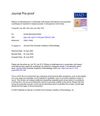TLDR H-1 antihistamines may help with various skin conditions, but more research is needed to confirm their effectiveness.
The systematic review examines the potential off-label uses of H-1 antihistamines in treating a range of dermatological conditions beyond their common use for itch and urticaria. It includes 51 articles from PubMed and Embase, highlighting cases where H-1 antihistamines have been beneficial, such as in lichen planopilaris and melanoma. For example, a prospective cohort study of 21 patients and a retrospective study of 103 Chilean adults showed effectiveness of cetirizine in treating lichen planopilaris, and a retrospective cohort study of 1,253 individuals indicated that H1-antihistamines could be linked to improved melanoma survival. Additionally, cetirizine has been observed to reduce inflammation in psoriatic lesions. Despite these findings, the evidence is generally weak, with only two randomized controlled trials supporting the use of H-1 antihistamines in acne treatment. The review calls for more robust studies, such as RCTs, to confirm the efficacy of H-1 antihistamines for these dermatological disorders, although they are considered safe and cost-effective.
 5 citations
,
July 2020 in “Journal of the American Academy of Dermatology”
5 citations
,
July 2020 in “Journal of the American Academy of Dermatology” Adding antihistamines to topical corticosteroid and cryotherapy may improve hair regrowth in alopecia areata patients.
 38 citations
,
January 2019 in “International Journal of Women's Dermatology”
38 citations
,
January 2019 in “International Journal of Women's Dermatology” The document concluded that more research is needed to find the best treatment for Frontal fibrosing alopecia.
19 citations
,
July 2017 in “Clinical and experimental dermatology” Men with lichen planopilaris had earlier onset than women, and treatment usually improved the condition.
 21 citations
,
June 2017 in “Journal of Dermatological Treatment”
21 citations
,
June 2017 in “Journal of Dermatological Treatment” Topical cetirizine improves hair density and thickness in androgenetic alopecia, but more research is needed.
 205 citations
,
March 2012 in “Science Translational Medicine”
205 citations
,
March 2012 in “Science Translational Medicine” PGD2 stops hair growth and is higher in bald men with AGA.
9 citations
,
September 2010 in “Dermatologic therapy” Combining cetirizine and topical steroids can effectively manage severe lichen planus pilaris.
35 citations
,
March 2010 in “Journal of Dermatological Science” Ebastine may help regrow hair in alopecia areata patients.
 63 citations
,
March 1998 in “Archives of Dermatology”
63 citations
,
March 1998 in “Archives of Dermatology” Antidepressants may improve or resolve scalp dysesthesia in most patients.
25 citations
,
March 2021 in “Australasian Journal of Dermatology” Ustekinumab successfully treated a man's resistant skin condition when other treatments failed.
 5 citations
,
February 2010 in “Expert Review of Dermatology”
5 citations
,
February 2010 in “Expert Review of Dermatology” Treating both the mind and skin together, especially by managing stress, can greatly improve outcomes for skin disorders linked to psychological issues.
 41 citations
,
March 2010 in “Psychology Research and Behavior Management”
41 citations
,
March 2010 in “Psychology Research and Behavior Management” Using psychological treatments can help manage skin conditions along with regular medical care.

The document is a detailed guide on skin conditions and treatments for dermatologists.
 4 citations
,
January 2012 in “Elsevier eBooks”
4 citations
,
January 2012 in “Elsevier eBooks” The document concludes that various skin conditions have specific treatments, ranging from antihistamines for urticaria to surgery and medication for tumors and chronic skin diseases.










